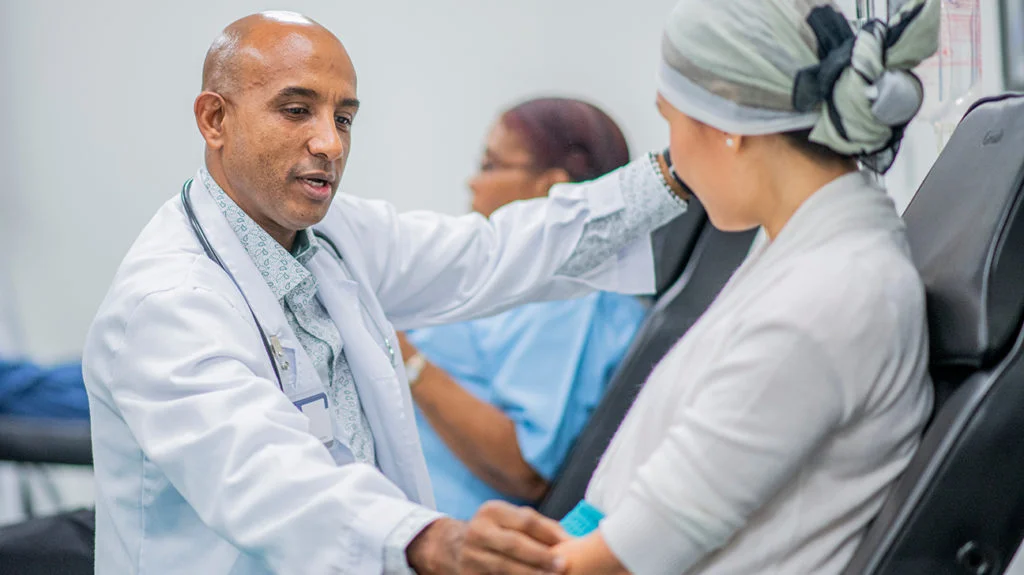Dealing with the effects and treatments of cancer is a complicated process that requires emotional strength and a care plan. The main goal of any oncologist is to get rid of the disease, but it is also crucial to reduce side effects and improve a patient’s quality of life. Here are ten important tips oncologists say will help cancer patients deal with the side effects of their treatments.
Recognize and Understand Your Treatment
Understand your treatment plan to get through your cancer journey successfully. Ensure you have an honest discussion with your oncologist. He or she will be able to explain the treatment plan, what to expect, and any possible side effects. This knowledge will give you more power, lessen your worries, and prepare you for the journey ahead.
Create a Support System
During this time, it is very important to have emotional and mental support. Build a strong support network of family, friends, or cancer support groups. This network can give you the emotional support you need, help with day-to-day tasks, and take you to your medical appointments.
Manage Fatigue
Cancer treatments often cause people to feel tired. Eat a well-balanced diet full of proteins and complex carbohydrates to keep your energy levels steady. Also, light exercises like walking slowly or doing restorative yoga can help fight fatigue and make you feel better. But pay attention to your body and rest when it tells you to.
How to Deal with Nausea and Throwing Up
Chemotherapy often makes people feel sick and makes them throw up. Keeping yourself well-hydrated and eating small meals often instead of three big ones can help you deal with these symptoms. Your oncologist can give you effective medicines to make you feel less sick.
Read Also Your Oncologist: Understanding Cancer Care
Handle Hair Loss
Scalp cooling caps can help with hair loss, a common but upsetting side effect of chemotherapy. Talk to your doctor about how to use them. These can help stop hair loss from getting worse. Also, you might want to buy a wig or other head covering before you start treatment to make the change easier.
Manage Skin Changes
Cancer treatments can cause many skin problems, such as dryness, itching, and rashes. Make sure to use gentle skin care products that won’t irritate your skin, and don’t take hot showers or baths, which can make your skin even drier. Protect your skin from the sun at all times, especially during and after treatment, when it may be more sensitive.
Identify and Address Emotional Changes
Cancer treatment often causes changes in how people feel, like anxiety and depression. Therapy or counselling from a trained professional can be very helpful. Support groups give people a place to talk about their problems and learn from others going through the same things.
Alleviate Mouth Sores with These Home Remedies
Some cancer treatments can cause mouth sores that hurt. Using a mild baking soda and water solution to rinse your mouth every day can help keep your mouth clean and give you some relief. Also, avoid spicy and acidic foods because they can make the sores worse.
Make sure you eat well
Eat well while getting treatment for cancer. But it might be hard because of side effects like a change in taste, loss of appetite, or feeling sick. Small meals more often, with a focus on protein-rich foods, can help. Your doctor or a dietitian can help you decide what to eat based on your needs.
Stay busy
Physical activity can help with many side effects of cancer treatment, such as fatigue and mood swings. Do physical activities that match your energy and comfort level. The goal is not to work out hard but to stay as active as possible, as advised by your oncology team.
Follow-ups and regular checks
Consult your oncologist regularly to see how your treatment is going and to deal with any side effects. Regular blood tests, scans, and other diagnostic tests can give your oncologist important information that can help them make changes to your treatment plan that will make it work better and cause fewer side effects.
It’s not easy to get through cancer treatment, but these tips can help you deal with the side effects and live a better life. Remember that the key is a multidisciplinary approach. Since your oncologist is the center of this approach, he or she should be the first person you talk to if you have any health concerns during treatment.
Several reputed hospitals in Mumbai and other places have highly experienced cancer doctors dedicated to providing comprehensive and compassionate care. The road to recovery may be long and hard, but it can be done with strength and hope with the right care and support.



